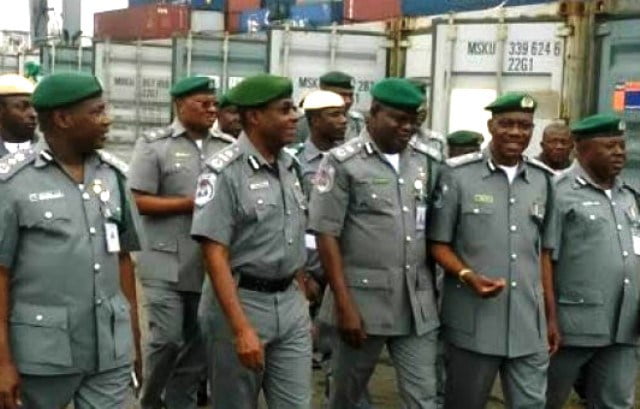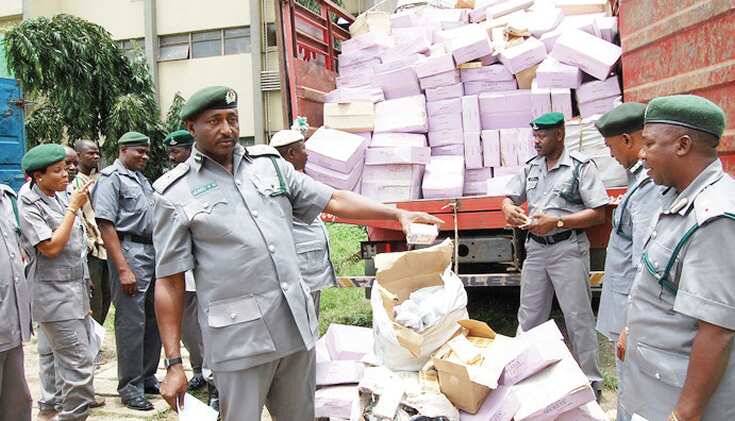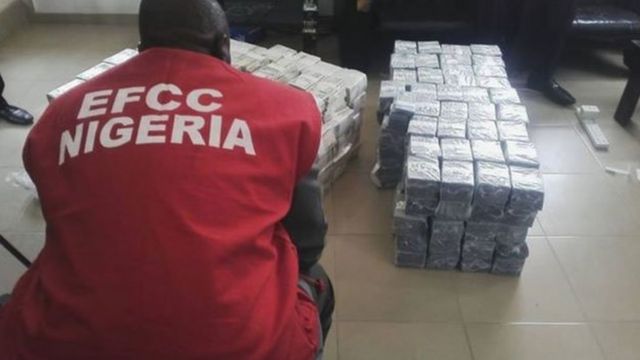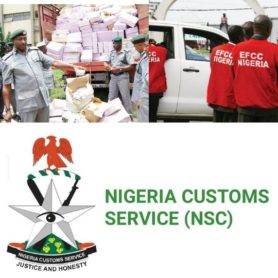Assistant Commander of the EFCC, ACE I Michael T. Wetkas, has pledged to escalate investigations into an alleged bribery scandal involving officials of the Nigeria Customs Service (NCS). The $54,230 (Fifty Four Thousand, Two Hundred and Thirty United States of American Dollars) in question was handed over to the EFCC by Comptroller Dera Nnadi of the Customs Area at the Tincan Island Port in Apapa, Lagos. This handover took place on Tuesday, November 28, 2023.
Wetkas expressed gratitude for the ongoing collaboration between the EFCC and the NCS, emphasizing the agencies’ shared commitment to combatting corruption and offenses related to fraudulent activities. He reiterated the EFCC’s dedication to providing unwavering support in this joint endeavor. According to Wetkas, the alliance between the two entities is integral in fostering a corruption-free environment within Nigeria’s customs operations.

Origin of Illicit Funds and Ongoing Investigations
Comptroller Dera Nnadi shed light on the origin of the funds, stating that they were derived from criminal activities linked to the importation of illicit drugs. Nnadi emphasized that the Customs officials thwarted attempts to illegally release these drugs. Furthermore, there were multiple efforts by importers and their accomplices to compromise NCS officers through a bribe amounting to $54,230. This sum was vehemently rejected by the vigilant Customs officials.
Nnadi highlighted the proactive stance of the Customs in promptly handing over the implicated parties, including the importers, agents, and the containers involved, to the National Agency for Food and Drug Administration and Control (NAFDAC) for further investigations. Additionally, Nnadi emphasized the urgent need for more robust collaborations not only with the EFCC but also with other law enforcement agencies in curbing smuggling activities within the command.

Nigeria’s Ongoing Battle with Corruption: Stifling Progress and National Pride
Nigeria, often heralded as the ‘Giant of Africa,’ faces a stark reality—its self-proclaimed status is overshadowed by a relentless plague: corruption. The nation’s potential for greatness remains stymied, with Transparency International highlighting the staggering loss of billions of dollars to corruption since its independence. This rampant malfeasance not only hampers domestic progress but also casts a pall over the aspirations of Nigerians globally, both within the country and in the Diaspora.
Former President Olusegun Obasanjo’s foresight in establishing the Economic and Financial Crimes Commission (EFCC) in 2003 stands as a commendable milestone in the fight against graft. Over nearly two decades, the EFCC has emerged as a pivotal force, making significant strides in the Herculean battle against this societal menace. The agency’s unwavering dedication and efforts have borne fruit, marking tangible progress in curbing corruption.

EFCC’s Collaborative Approach: A Beacon of Hope in the Fight Against Corruption
Recognizing the enormity of the challenge, the EFCC wisely acknowledges that combating corruption cannot be a solitary endeavor. In a commendable move, the Commission has actively pursued strategic partnerships with various agencies across Nigeria. This collaborative approach signifies a fundamental shift from isolated efforts to a concerted, united front against corruption.
The EFCC’s commitment to forging alliances underscores its understanding of the multifaceted nature of corruption. By pooling resources, expertise, and intelligence, these partnerships bolster the nation’s resolve to minimize corrupt practices. Such collaborative initiatives not only amplify the EFCC’s impact but also symbolize a collective determination to fortify Nigeria’s integrity and reclaim its standing as a beacon of progress in Africa.














